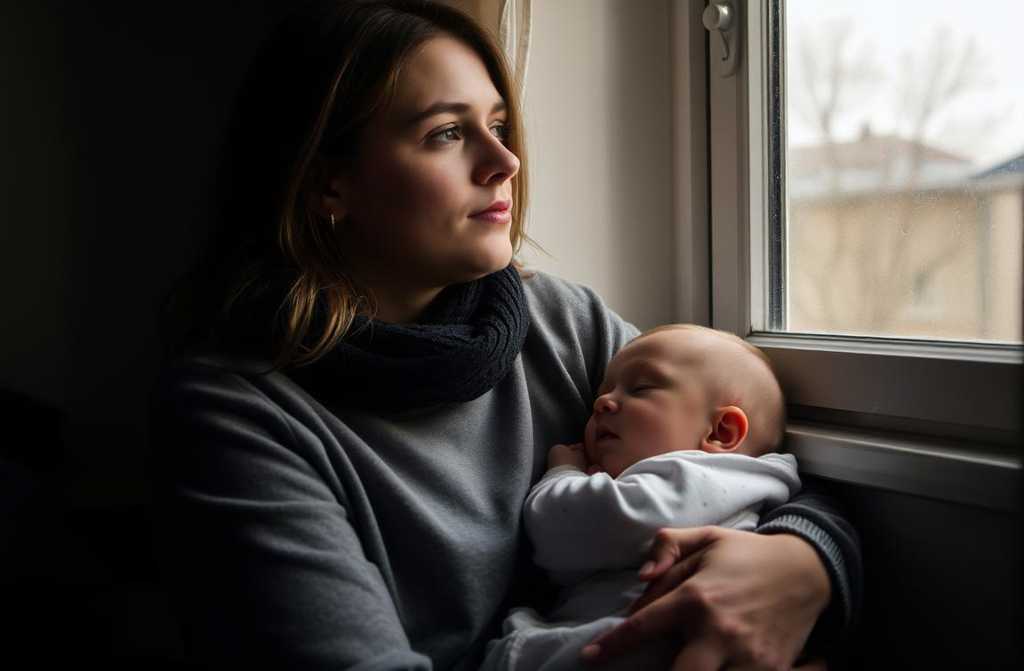The Day My World Changed Forever
I still remember that morning as if it crashed into my life like a double-decker bus in Piccadilly Circus.
The doctor stood there, holding scans, rattling off terms like “neurological abnormalities” and “functional impairments.” His words swirled around me like a London fogthere, but impossible to grasp. I sat frozen, clutching my son, unwilling to process it.
Then, like a bolt from the blue:
“Hell never speak. Not now. Not ever.”
The clinic was cold, the chair unforgiving. My little boy, Oliver, dozed against my chest, his tiny breaths steady. Outside, the doctors voice droned on, but all I heard was that one cruel sentence, etched into my mind like graffiti on a Tube station wall.
*Hell never call me Mummy. Never ask why the rain falls. Never tell me about his day.*
I refused to believe it.
*Hes just a baby. Hell catch up. There must be specialists, therapies, something.*
But the doctor shook his head.
“Severe neurological damage. The speech centres arent functioning. Its irreversible.”
Suddenly, the floor vanished beneath me. My thoughts scattered like pigeons in Trafalgar Square. I held Ollie tighter, as if love alone could rewire his brain.
He slept, blissfully unaware.
Inside me? A scream with no sound.
The pregnancy had been a surprise, but Jamesmy husbandwas over the moon. We lived in a cosy flat in Manchester, saving up for a proper house. Every night, hed rest his hand on my bump and whisper, “This ones going to be brilliant. Takes after his mum, obviously.”
We laughed. We picked names. We dreamed.
Labour came early. James held my hand through every contraction, fetched tea from the hospital canteen, even joked with the midwives.
Ollie arrived too soon, too small. Tubes, monitors, an incubatorI barely left his side. When we finally took him home, I thought, *Now life begins properly.*
But the months rolled by, and silence settled in.
No babble. No gestures. No response to his name.
“Wait and see,” the GP said.
By one yearnothing. By eighteen monthsstill nothing.
I scoured parenting forums at 3 a.m., tried every therapy under the sun. Speech sessions, sensory play, even horse therapy (yes, really). Sometimes, a flicker of connectiona look, a smilemade my heart soar. Then, the silence returned.
Then came the diagnosis.
James started pulling away.
First, angerat the doctors, at fate. Then, quiet. Work late. Come home later.
One evening, over a half-empty cup of tea, he said it:
“I cant do this. Its too much. Im sorry.”
And just like that, he leftfor a woman with a “normal” child. One who talked, laughed, called *her* “Mummy.”
I stayed.
With Ollie.
With the silence.
No time to fall apart. Ollie couldnt speak, couldnt feed himself, couldnt say what hurt. His cries werent tantrumsthey were his only voice.
Nights blurred into days. Therapies, appointments, scribbled notes tracking every tiny win. I took freelance workcopywriting, data entryanything to keep the lights on. Benefits and baked beans became our staples.
No longer just a woman. Just *his* mum. His everything.
Once, in Tesco, a sudden noise sent Ollie into a meltdown. A woman muttered, “Whyd she bother having kids like that?”
I abandoned my trolley, tears hot on my cheeks.
At the clinic, a consultant sighed, “Still hoping hell talk? Let it go.”
But how? When every silent day broke my heart a little more?
YetOllie *felt*. He laughed at *Peppa Pig*, hugged me when I cried, patted my face with his tiny hands. No words, but love louder than a stadium chant.
Then, one rainy Tuesday at the bus stop, a woman smiled.
“Need a hand?”
Her name was Margaret. Her son, now 20, never spoke either. Used a tablet, gestures, mischief.
“It starts with grief,” she said. “Then you realisenormal is what *you* make it.”
For the first time in years, warmth crept back in.
Margaret became my lifeline. Taught me about AAC apps, sign-along, patience. Never pityjust quiet understanding.
Once, she said, “Youre all cracked, but still standing. Thats proper strength.”
Her words held me up.
Soon, I started an online group for mums like us. We shared tips, vents, occasional victories (“He slept past 5 a.m.!”).
One mum wrote: *”I nearly walked out. Read your post. Stayed.”*
Another: *”You dont sugarcoat it. Thank you.”*
Suddenly, the pain had purpose. If my honesty kept one mum from leaving, the silence wasnt wasted.
Even quiet can shout. Even shadows hold light.
Three years on.
Ollie still doesnt speak. But his grin could power the National Grid. His hugs erase exhaustion. He taps his tablet now:
*”Hungry.” “Play.” “Mum.”*
Then, one miraculous day:
*”Mum. Heart. Happy.”*
I sobbedhappy tears. He *understood*. He *loved*.
Sometimes, I think of James. No hate. Just sadness. Fear broke him.
I forgave himfor *me*, not him. Bitterness is too heavy to carry.
Now, the mirror shows a tired woman. Wrinkles from sleepless nights, hair perpetually in a messy bun.
But also: a woman who walked through hell in Primark slippers and came out standing.
Not a saint. Just a mum.
If offered a perfect lifeno struggles, no painbut without Ollie? Id say no.
Hes my whole world.
Were *these* mums.
Our sleepless nights are for cuddles, not cocktails.
We weather stares, stupid comments, quiet despair.
We love louder than a football chant.
Were not weak.
Were the ones who *stayed*.
And if youre reading this, fighting your own silent battle:
Youre not alone.
Youre tougher than you know.
Youll get through.
Because youre a mum.
And thats the hardest, bravest, most brilliant thing there is.







